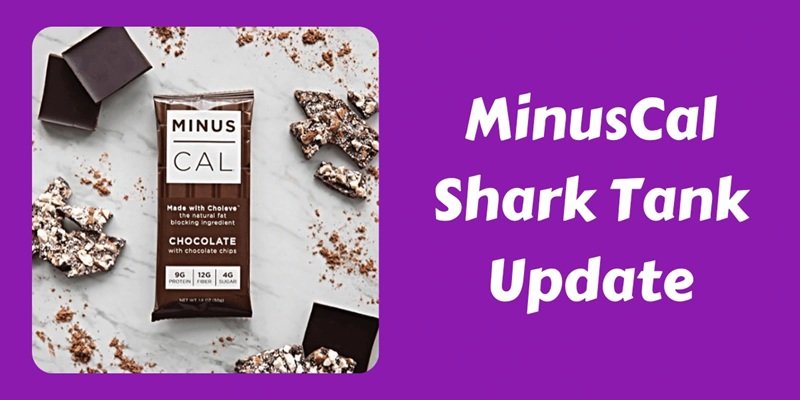Is Minus Cal Still in Business Cal gained interest within the well-being and nutrition area with its protein bars that claimed to dam fat absorption, positioning itself as a revolutionary product for weight reduction fans. However, as with many ultra-modern weight loss plan products, questions about the organization’s sustainability, credibility, and regulatory problems started to surface. If you are thinking, “Is Minus Cal nevertheless a commercial enterprise?”, this newsletter will discover the history of the brand, the controversies surrounding it, and its cutting-edge reputation in 2025.
The Rise of Minus Cal
What Was Minus Cal?
Minus Cal was added to the marketplace as a protein bar emblem with a twist. Its unique selling point revolved around an element known as Choleve, which allegedly had the ability to block the absorption of dietary fats within the human frame. The logo marketed itself heavily to fitness and eating regimen-aware customers, promising weightloss help without large lifestyle adjustments.
The Science Behind Minus Cal
The enterprise claimed that Choleve, a proprietary combo, averted fat from being absorbed, correctly lowering calorie consumption. These assertions drew immediate attention from the Federal Trade Commission (FTC) and other health corporations, as bold health claims require sizable medical proof.
Despite the hype, many vitamins specialists and scientists criticized the lack of peer-reviewed research backing the claims made by means of Minus Cal. Several specialists warned purchasers about the risks of counting on unproven fats-blockading dietary supplements, especially whilst their consequences on long-term fitness were unknown.
Regulatory Challenges and Legal Troubles

FTC Intervention
In 2020, the FTC charged the business enterprise in the back of Minus Cal for making false and unsubstantiated weight loss claims. The corporation stated that the enterprise misled purchasers by advertising its bars as clinically tested to cause weight loss and decrease fat absorption, without sufficient clinical backing.
As a result of the FTC’s findings, the agency confronted felony motion and turned it into required to end all misleading advertising and marketing practices. They additionally needed to pay financial consequences and problem corrective notices to clients and vendors.
This felony blow changed into a primary turning point for Minus Cal, significantly unfavorable its popularity and making its future unsure.
The Aftermath: Is Minus Cal Still in Business?
Disappearance from Marketplaces
Following the FTC ruling and developing skepticism from the health community, Minus Cal merchandise started disappearing from foremost on-line and physical retail stores. As of 2021, it has become increasingly difficult to discover Minus Cal protein bars on platforms like Amazon, Walmart, or health meals stores.
The agency’s legitimate internet site went offline, and its social media accounts have become inactive, leading to the hypothesis that Minus Cal had ceased operations altogether.
No Recent Activity
As of 2025, there were no professional announcements concerning a comeback or relaunch of Minus Cal. The employer has not issued any public statements, and there may be no indication of product development or research being carried out beneath the Minus Cal name.
All signs point to Minus Cal being out of commercial enterprise, and the logo appears to have come to be defunct after the regulatory crackdown and public backlash.
Lessons Learned from the Minus Cal Case

The Importance of Scientific Backing
The Minus Cal case serves as a powerful reminder that health and nutrition claims have to be sponsored by using credible, peer-reviewed technological know-how. Companies that make exaggerated or unsubstantiated claims are likely to stand regulatory scrutiny and prison motion, particularly in the heavily regulated supplement and food sectors.
Consumers should be cautious when attempting new food regimen products, specially those who make too-suitable-to-be-real guarantees like effortless weight reduction or astounding fats blocking.
The Power of Regulatory Bodies
The quick intervention of the FTC highlights the importance of oversight inside the fitness and well-being enterprise. By maintaining agencies responsible, these groups protect customers from fraudulent claims and probably harmful products.
In the case of Minus Cal, the regulatory movement helped prevent the spread of misleading health information and curbed the sale of an unproven product.
What Alternatives Exist Today?
While Minus Cal might also now not be around, the demand for more healthy snacks and powerful weight-loss aids continues to grow. Consumers now turn to products that target transparent labeling, clinical validation, and balanced nutrients.
Some famous and greater credible options consist of:
- RXBAR – Known for its minimum elements and excessive protein content material.
- Kind Bars – Focuses on herbal ingredients and element control.
- Quest Nutrition Bars – Offers low-sugar, high-protein options backed with the aid of research.
However, it is crucial for buyers to take into account that no single product can update a wholesome food plan and regular exercising. Sustainable weight reduction and fitness improvements come from life-style changes, no longer miracle snacks.
Conclusion
Is Minus Cal Still in Business Cal still in enterprise? Based on all available proof, the answer is no. The brand has ceased operations following regulatory problems and a lack of medical credibility. While its idea attracted preliminary interest, the agency’s failure to offer proof for its bold claims caused its downfall.
These days the well-being market, transparency, belief, and technology-backed formulation are more vital than ever. Consumers are higher informed and anticipate greater than empty guarantees. The Minus Cal story is a strong example of the way groups need to returned up their claims—or chance fading into obscurity.
Disclaimer
This article is for informational purposes only. It does not constitute medical, legal, or professional advice. Always consult with a qualified healthcare provider or regulatory source before making decisions based on product claims. We do not represent or have any affiliation with Minus Cal or its associated companies.










